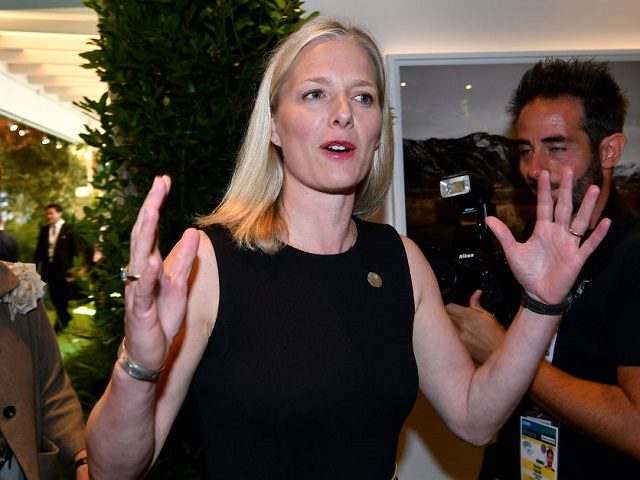Canada’s Minister of Environment and Climate Change has blamed “asthma-inducing smoke from B.C. forest fires” on climate change, while the Canadian Mounted Police claim the deadly string of fires in British Colombia was started by arsonists.
In a February 22 Tweet, Minister Catherine McKenna said that “Canadians are feeling the impacts of climate change on their health, from deadly heatwaves in Quebec last summer to asthma-inducing smoke from B.C. forest fires.”
The message was intended to motivate Canadians to accept the nation’s notorious carbon tax aimed at punishing those who generate greenhouse gas emissions.
“Learn how putting a price on carbon pollution will apply in your province or territory,” said McKenna, the 47-year-old Trudeau appointee from Canada’s Liberal Party, referencing an article on the subject.
Curiously, the Royal Canadian Mounted Police (RCMP) said last summer that the string of forest fires in British Colombia was caused by arson, not climate change.
According to the Vancouver Sun, the RCMP said “arson is behind as many as 29 wildfires that scorched large swathes of the Okanagan Valley during the past four years.”
“Mounties believe the fires, which were reported in Naramata, Okanagan Falls, Osoyoos, Oliver, Penticton, Summerland and Lake Country, were all deliberately set and all connected,” the newspaper reported.
If both the police and the climate minister are to be believed, one must infer that climate change induced the arsonists to set the fires, which, while not impossible, stretches belief.
Last March, Ms. McKenna called on her Twitter followers to “consider the gendered impacts of climate change on women, girls and children” while praising Canada’s leadership in training “women negotiators” in the fight against anthropogenic global warming.
Apparently, at least in the minister’s mind, the weather is waging its own “war on women.”
Popularly known as “Climate Barbie,” McKenna has railed against the label as a “sexist insult,” while even some of her fans have admitted its aptness, urging her to be less thin-skinned.
Canadian author and journalist Rosie Dimanno, for instance, confessed that the nickname “captures her perfectly,” if one were “a global warming troglodyte inclined to lob a sarcastic brickbat aimed, presumably, at McKenna’s purported shallowness. A bit of mischief, that’s all.”
“Politics is a rough-and-tumble business,” Dimanno observed.
Follow Thomas D. Williams on Twitter Follow @tdwilliamsrome

COMMENTS
Please let us know if you're having issues with commenting.